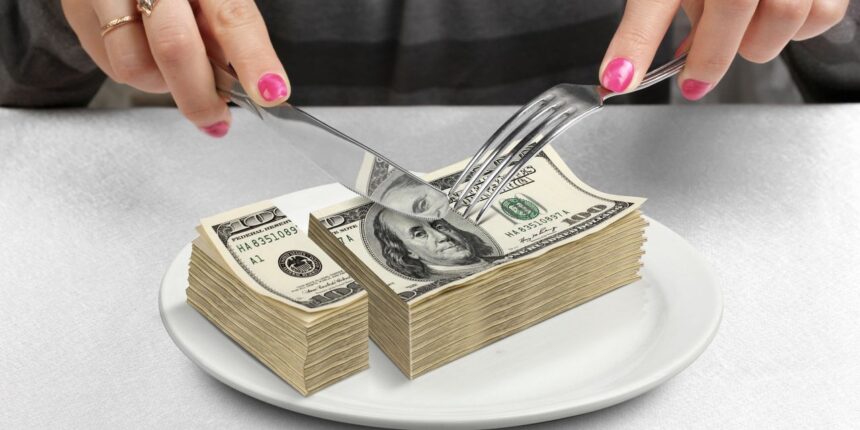As interest rates have skyrocketed, so has the amount of cash that Americans are stashing in high-yield savings accounts, certificates of deposit and money-market accounts earning 4% or maybe 5% or maybe even 7% or more. It’s a great deal, and on days when the stock market is tanking, it will make you feel like a really smart investor.
The government is going to want its cut – and soon.
“There will be surprises for those investing in those products outside of IRAs,” says Scott Bishop, executive director of wealth solutions at Presidio Wealth Partners in Houston.
That especially goes for retirees, who tend to have more cash on hand than most to cover living expenses. There could be unintended consequences to the interest-rate bonanza, such as pushing them into a higher tax bracket, increasing the taxation of Social Security and bringing on surcharges on their Medicare premiums.
Also, warns Bishop, if you have a large amount of cash and have earned so much income on it this year that it’ll cause you to owe far more than you usually do in April when you file your federal tax return for 2023, you might want to think about paying some of that in advance in quarterly tax payments, the next of which is due January.
What you could owe this year
The tax you pay on your interest income will vary based on your overall income, which is something many people might have forgotten about over the years when interest rates were so low. That will likely work out to be more in taxes for most people than capital-gains taxes, because those with enough cash to worry about their tax on it are likely paying at least 22% in federal income taxes, and possibly up to the highest tax rate of 37%.
That interest income is also taxed yearly, regardless of the transactions involved, and state taxes could add on top.
The same rules go for short-term capital gains, but long-term capital gains on investments are taxed at a lower rate, and could be zero for some (income up to $44,625 for single, $89,250 for married filing jointly). Otherwise, most are at 15% and the highest bracket is 20%, plus possibly some additional investment taxes for the very wealthy.
Say you’re a retiree who has $250,000, which sounds crazy, but happens more than you think, and some people have to keep cash in several different banks to stay under the FDIC insurance threshold. By the end of this year, you might have earned more than $12,000 in interest income at 5%, which probably makes you very happy. But then you have to realize, if you’re paying 22% in federal taxes that could add an additional $2,600 or so to your tax bill. In the highest tax bracket, that could add an additional $4,600.
Are you crying over spilled milk?
Nobody likes to pay taxes, but at the end of the day, it’s just a portion of your gain, not the whole thing.
“My theory is that if you’re paying tax on investment gains, it’s a good thing,” says Nick Maggiulli, author of “Just Keep Buying,” and chief operating officer at Ritholtz Wealth Management in New York. “I think people are just happy that there is yield finally.”
Bishop says that if people are really that upset about paying taxes on interest income, there are still plenty of banks out there that will offer them a less good deal. The national savings rate average was just 0.56% as of the end of September, according to Bankrate.com, despite the high rates available from online banks.
Still, if you want to be a tax-savvy investor, you want to look at the tax you’re paying and try to reduce it. If cash is now causing issues, then you have other choices.
“When there is an increase in income, we want to look at taxes and be efficient and do what we can to plan for that. It’s on a client-by-client basis,” says Nicole Sullivan, a certified financial planner who is a co-founder and director of financial planning at Prism Planning Partners in Libertyville, Ill.
One go-to for many is municipal bonds, which can sometimes be triple-tax-free – no federal, state or local taxes – depending on the investment. But there are some drawbacks. Bishop points out that municipal bonds aren’t paying enough right now to be a real alternative. And also, municipal bond income can be included in the calculation of modified adjusted gross income, which means it’s not an escape from Medicare IRMAA surcharges.
Treasurys are another option, and will usually be tax-free at federal level, and sometimes at state levels, says Nicole Davis, a CPA at Butler-Davis Tax & Accounting in Covington, Ga. Series I bonds are only taxable when cashed in, and some tax can be avoided if the funds are used for certain purposes, like paying for college.
You can also invest in Treasury ETFs or other cash-equivalent securities where you typically don’t have tax impact until you sell. And you can always offset any of this investment and interest income gain with losses, and also carry over $3,000 a year in losses on your tax return against ordinary income.
But if your main concern is not making too much interest income because of your tax bill, it’s unlikely that you’re going to want to intentionally harvest losses in order to cut those gains. If your interest income concerns you, the important thing is to realize what’s looming and not get surprised by a 1099 form in January. There’s still time before the end of the year to look at your investments and figure out a tax-efficient strategy.







